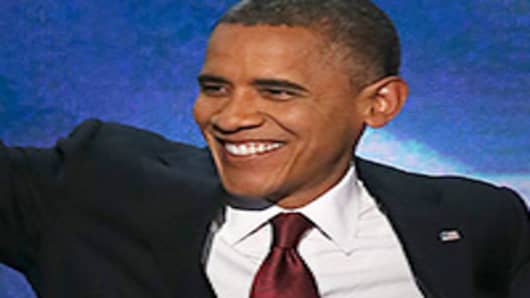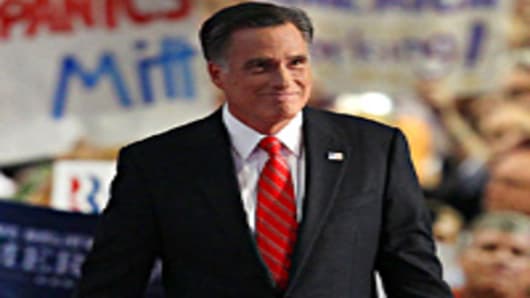"That was a very insulting remark to make. I built this business," San Antonio locksmith Gilbert Cantu says in one ad.
Still, even some Romney supporters say they don't believe that the president meant to say that small business owners didn't build their own companies.
"I think everybody knows what he meant — somebody helped you learn how to do that," Carl Higbie, a self-described die-hard conservative and owner of Tarzan Tree Service in Virginia Beach, Va., told The Associated Press. "But the way it came across, it says he doesn't understand small business."
Obama and the Democrats have been fighting back by using part of the phrase the Republicans used to criticize the president. "Fact Check: Romney Didn't Build That. He Destroyed It," is spread across the top of a page on Obama's website that charges that "the rate of new start-ups in Massachusetts was lower than the national average, declining during Romney's tenure" as Massachusetts governor. The phrase "Mitt Romney: You Didn't Build That -- You Destroyed It," is the title of a Democratic National Committee video that includes a montage of news reports and film clips about job losses at companies bought by Bain Capital, the private equity firm that Romney co-founded.
(Read more: Are You Better Off?)
The Democrats are also appealing to small business by touting the administration's record of helping small companies. And they're recruiting small business owners to help out.
"As the owner of Crenshaw Bros. Construction in Erie, I've seen firsthand how the President is looking out for us," says Don Crenshaw in a statement contained on the Democratic Party's Erie County, Pa., website. "The recession nearly ruined my company, but an influx of public investment projects funded by President Obama's Recovery Act rejuvenated our business."
Republicans are still attacking Obama's record in addition to his "you didn't build that" comment. At the GOP convention, Sher Valenzuela, a candidate for lieutenant governor in Delaware and the owner of an upholstery company, said of the Obama administration, "they just don't trust the entrepreneur's ability to grow her own business and to create jobs." Rep. Cathy McMorris Rodgers, R-Wash., who worked for 13 years in her family's fruit business, said, "unlike President Obama, I know that small businesses are the true engine of the economy, not the government."
The majority of small business owners are Republican, according to a 2011 survey by the National Small Business Association, a group that lobbies on behalf of small business owners. Fifty-four percent of the 650 owners surveyed identified themselves as Republicans, while 16 percent said they were Democrats.
Democrats with small business ties are tired of the bickering, according to some Twitter users last week. "My father was a small business owner. I run a small nonprofit. I'm a Democrat. So quit with the small business rhetoric," said a Tweet from Kevin Dean, of Memphis, Tenn.
Focusing on small business is a smart strategy because it will appeal to middle-class voters, Dean said in an interview with the AP.
"But it's also a red herring from the real agenda," he said. "I don't feel that Romney knows about small business. He knows about big business."
Email us at SmallBiz@cnbc.com and follow us on Twitter@SmallBizCNBC.




